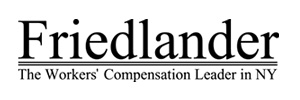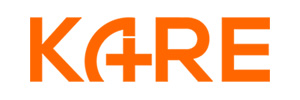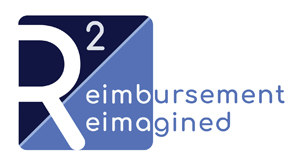Frequently Asked Questions with NYS Department of Health Responses
NYSHFA | NYSCAL has compiled the following questions recently sent to the NYSDOH from the Associations, with their respective DOH responses Please note these questions relate to both Skilled Nursing Facilities and/or Assisted Living Facilities.
Testing Requirements
Question: Do fully-vaccinated contractors/vendors (e.g., hospice staff, elevator repair, cable , maintenance) need to be tested prior to entry to the facility?
Response: If the contractor/vendor is fully vaccinated, they would not require testing as previously stated in guidance. All staff, volunteers, contractors, visitors, etc. MUST be screened regardless of their vaccination status for signs and symptoms of COVID-19. In addition, contractors should not be performing work/activities on COVID positive units. All individuals entering nursing homes and adult care facilities must adhere to the core principles of infection prevention and control.
Question: Does a fully vaccinated, employed beautician need to be tested within 24 hours prior to providing services in a nursing home and within 7 days prior to services in an ACF?
Response: Please refer to the current June 10, 2021 guidance. Again, all visitors, contractors, vendors, etc. who are fully vaccinated would not be subject to routine testing. Screening, however is required and all individuals entering nursing homes and adult care facilities must adhere to the core principles of infection prevention and control.
Question: Do fully-vaccinated hair salon contractors need to be tested daily in a nursing homes and within 7 days in an ACF?
Response: Please refer to the responses provided above.
Personal Caregiving and Compassionate Caregiving Visitors in Nursing Homes and Adult Care Facilities
Question: What is the difference between a personal caregiving visitor and a typical visitor at this time? Does a personal caregiving visitor have more access to the facility or to his/her loved one than other visitors at this time? If so , what additional access does a personal caregiving visitor have?
Response: Personal caregiving visitors are specifically designated by the resident, and therefore differ from general visitors of a resident who have not been specifically designated as a personal caregiving visitor. As detailed in the new 10 NYCRR 415.3(d)(3) (for NHs) and 18 NYCRR 485.18 (for ACFs), personal caregiving visitation regulations must be followed by the facility when there is a declared public health emergency, and such designated visitors must be permitted notwithstanding general visitation restrictions in the facility.
Question: Is this intended to permit family members and loved ones to provide personal care-such as bathing?
Response: Per the governing statute, personal caregiving is defined as care and support of a resident to benefit such resident’s mental, physical, or social well-being, and compassionate caregiving is defined as personal caregiving provided in anticipation of the end of the resident’s life or in the instance of significant mental, physical or social decline or crisis (see PHL § 2801-h[1][a-c], SSL § 461-u[1][a-c]). If bathing is provided to support the resident’s mental, physical, or social well-being, than such may be provided by the personal caregiving visitor, but in no event may the personal care provided by the visitor replace the required care a NH or ACF is mandated to provide.
Question: The regulations reference assistance with feeding. Is it intended that these regulations allow family members to feed residents in nursing homes? ACFs?
Response: See response immediately above.
Question: The recent ACF visitation regulations seem to loosen the restrictions as it relates to masking and social distancing in the event that the resident and visitor are fully vaccinated. How does this interact with these new regulations and requirement for social distancing and PPE?
Response: Current DOH guidance relating to infection control protocols in congregate settings, including social distancing and mask usage requirements, must be followed. The personal caregiving visitation regulations direct NHs and ACFs to adhere to current DOH infection control guidance (or in the absence of such guidance, to CDC and CMS guidance).
Question: Can the personal caregiver or the compassionate caregiver be a paid person designated by the resident/family? In other words, if the resident or representative selects a private aide/paid companion, must the ACF or NH permit this? Should there be limitations on this—such as what that person can do, whether they need to have criminal history record checks, training, certification, etc.
Response: According to the statute, a “personal caregiving visitor” means a family member, close friend, or legal guardian of a resident designated by such resident, or such resident’s lawful representative, to assist with personal caregiving or compassionate caregiving for the resident.
Question: The reg requires the facility to establish the frequency and duration of visits, but also requires facilities to ensure that residents are able to have visitors at their desired frequency and length of time. What if these two imperatives (and the imperative to implement effective infection prevention measures, avoid over-crowding, and afford roommates privacy) conflict?
Response: Facilities must develop policies and procedures that balance both resident rights and infection control requirements in place at the time. The facility should consult with its legal counsel to determine how best to balance these interests and diligently document the reasons for the decisions made in internal records should DOH surveyors request such.
Staff Dining
Question: Will vaccinated staff be able to eat together now?
Response: Based on our current guidance and CMS QSOs, there is nothing specifically banning NH staff from dining together, however if staff are dining together, they must still adhere to core principles of infection prevention and control.
NYSHFA/NYSCAL CONTACTS:
Jackie Pappalardi, RN, BSN
Executive Director
518-462-4800 x16




